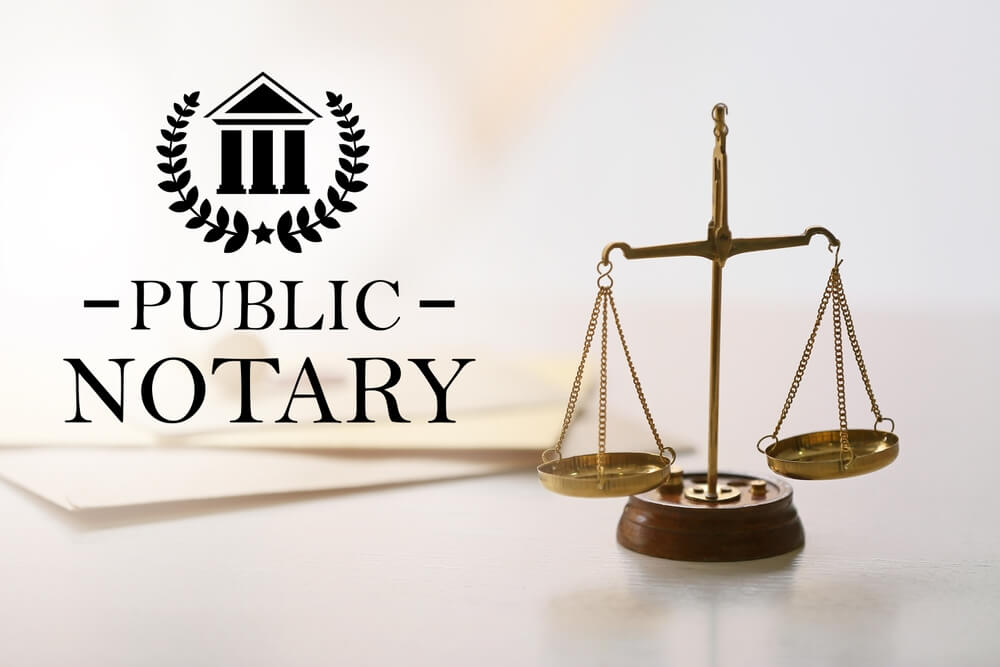Demystifying Notarial Job: Simplifying the Role and Relevance of Notaries
In the intricate internet of lawful documents and verification, notaries stand as columns of guarantee and credibility. Their duty, typically shrouded in secret for lots of, carries considerable weight in ensuring the credibility and stability of vital files. As guardians of legality and fact, notaries play an essential part in our culture, yet their job is not always fully recognized. By unraveling the complexities surrounding notarial practices and losing light on the relevance of their acts, a clearer understanding emerges of the vital duty notaries play in supporting the textile of legal and legal agreements.
The Background of Notarial Work
The background of notarial work days back to ancient human beings, where scribes played a crucial function in videotaping important info and verifying papers. This led to the advancement of notaries, individuals designated by the state to act as impartial witnesses in legal matters.
During the Center Ages, notaries got importance in Europe, with their features expanding to include preparing lawful records, certifying trademarks, and protecting records. The increase of global trade better emphasized the significance of notarial operate in confirming agreements and contracts across borders.
In the contemporary period, notaries proceed to play a vital duty in lawful and service deals by confirming identities, confirming the credibility of records, and protecting against fraud. Their function in accrediting the credibility of contracts includes a layer of protection and depend the ever-evolving landscape of business and law.

Obligations and Responsibilities of Notaries
The historical evolution of notarial work from ancient people to the modern-day period has formed the distinctive obligations and obligations that notaries support in lawful and company purchases today. Notaries play an important duty in verifying the credibility of documents and the identity of signatories. One of their main responsibilities is to witness the signing of vital records, such as agreements, wills, and deeds, to ensure that all celebrations are becoming part of contracts intentionally and willingly. Notaries likewise confirm that signatories are of sound mind and not under duress or threat.
Furthermore, notaries are entrusted with administering affirmations and oaths, which are critical in lawful process and the execution of testimonies. They certify copies of initial documents, providing guarantee to institutions that the duplicates are true replicas of the originals. Notaries need to preserve exact documents of all purchases they oversee to make sure openness and accountability. Overall, the tasks and responsibilities of notaries are important in protecting the integrity and legality of numerous documents and purchases.
Notarial Certificates and Signatures
Exemplifying precise focus to information, notarial certifications and trademarks work as vital components in confirming the credibility of lawful papers. Notarial certificates commonly have critical information such as the day of notarization, the names of the signatories, a description of the file, and the notary's main seal. These certifications supply a clear document of the notarial act, guaranteeing that the paper can be conveniently recognized and mapped back to the notary who supervised the process.
Trademarks play a pivotal function in notarial job, as they represent the arrangement and consent of the celebrations included. Notaries meticulously witness the signing of papers to verify the identity of the signatories and validate that they are authorizing of their very own free choice. By fastening their official seal and signature to the record, notaries license that the required procedures have actually been followed which the file is valid and enforceable.
Basically, notarial certifications and signatures are the characteristic of credibility in legal transactions, offering guarantee to all parties entailed that the papers are reputable and binding.
Significance of Notarial Acts

Notarization Refine Described
The notarization process generally starts with the individual providing the paper to a notary public. When the identification is confirmed, the notary makes certain that the individual signing the document does so voluntarily and without any coercion.

Final Thought

Notarial certifications commonly consist of essential information such as the date of registration, the names of the signatures, a summary of the file, and the notary's main seal. These certificates offer a clear record of the notarial act, making sure that the record can be easily identified and mapped back to the notary that oversaw the process.
By fastening their main seal and signature to the document, notaries certify that the needed treatments have been followed and that the file is enforceable and valid.
By verifying the identity of the notaries, validating their determination to get in into the contract, and accrediting the day and area of the finalizing, notaries play a vital duty in promoting the validity of lawful documents.After the document is authorized, the notary will affix their official seal or stamp onto the file.